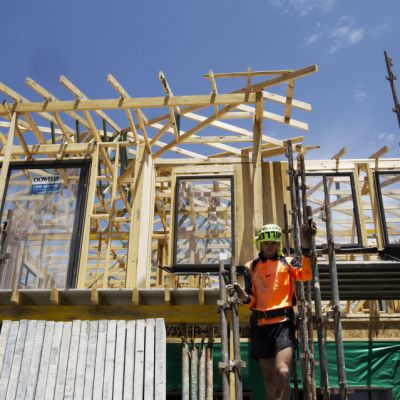Should you be on your apartment building's strata committee?

You’ve bought an apartment off the plan, the building is finished, you’ve taken possession, and you’re now off to meet your neighbours at the building’s first AGM.
And soon, as a brand new apartment-owner, you’ll face the most critical decision of all: should you be on the strata committee that helps run the place?
On the plus side, it means you’ll have access to information about everything going on, and be able to influence precisely what happens with the building. On the other hand, it could end up involving lots of time, energy and heartache.
“I think it’s always important to be part of your community, to give back, and also work to protect the value of your asset,” says Phil Gall, the chair of the apartment-owners’ peak body, the Owners Corporation Network (OCN). “There are many millions of dollars tied up in buildings, and they need to be managed properly.
“It’s also about helping to make them great places to live, with the kind of ambience that’s enjoyable and attracts other people to it later. And while it can be challenging being on the strata committee of a new building, if there are any problems, it can also be very rewarding to solve any issues and see the value of your investment grow.”
What does a strata committee do?
The committee – of up to nine members depending on the size and wishes of that first AGM of owners – elects a chair, secretary and treasurer or, in some cases, someone to be all three. It’s like the board of directors of a company and their CFO and CEO; the committee instructs the strata manager, and its building manager if it has one, what members would like done, after receiving both their professional advice and guidance from the owners’ corporation at general meetings.
Strata expert Jimmy Thomson of Flatchat says the legislated responsibilities of the strata committee are so vague, they’re almost impossible to define. At that initial AGM, delegated powers to approve non-major changes, such as the installation of a new kitchen or pet applications, can be granted, but anything that requires a bylaw, like changes to common property or a bathroom renovation, needs to go to a general meeting.
“Committee powers are always limited,” Thomson says. “For example, strata committees can issue notices to comply when residents breach bylaws but can’t impose fines – that has to be done through the NSW Civil and Administrative Tribunal (NCAT).
“They also have to send out agendas and minutes at certain times, and nothing that isn’t on the agenda can be voted on at a committee meeting. In reality, the strata committee could be completely moribund with the strata manager doing all the work, or they could just be a rubber stamp for an active chair or proactive manager. But having an engaged and active committee is ideal when it comes to running the building.”
So should you be on your strata committee?
If you have skills that you know could help in the running of a building, and could complement those of others standing, you could play an invaluable role in keeping your home in tip-top condition.
It’s also essential to quiz everyone standing about their reasons, and whether they may have financial links to the developer and builder, which could lead to conflicts of interest later.
“You do want a varied skillset among those standing, and diversity,” says Ben Cabello, head of strata management company Strata Embassy. “You want a good balance of men and women, and older and younger owners so there’s less conflict about differing views.
“With new buildings, you often have people who are buying into strata for the first time and don’t know much about it. It’s best, too, if people aren’t standing just for their own self-interest, for instance, if they want all the information about what’s happening, or they want one issue resolved. Good communication always means you’ll get better members.”
Often committees end up comprising solely older, retired owner-occupiers who have the time to contribute, while young professionals, investors or people who regularly travel with their work feel excluded from the process as they can’t regularly attend meetings.
A relatively new development in strata, however, is a range of communication IT platforms introduced by companies like Stratabox and Strata.life that make it much easier to communicate and make decisions online, obviating the need for so many physical meetings.
“That makes the work of strata committees much easier and more pleasant,” says Paul Chevrot, director of Stratabox. “Most people have better things to do than sit for hours in meetings, and some now communicate so well, making decisions as they go, they only need to meet quarterly. You can then end up with the best committee possible.
“For people thinking about whether to get involved, there really is no replacement for having skin in the game and looking after your own interests. Strata managers will do a lot of the work, but there’s no incentive for them to keep costs down or optimise the workings of a building. That’s down to the strata committee.”
We recommend
We thought you might like
States
Capital Cities
Capital Cities - Rentals
Popular Areas
Allhomes
More










